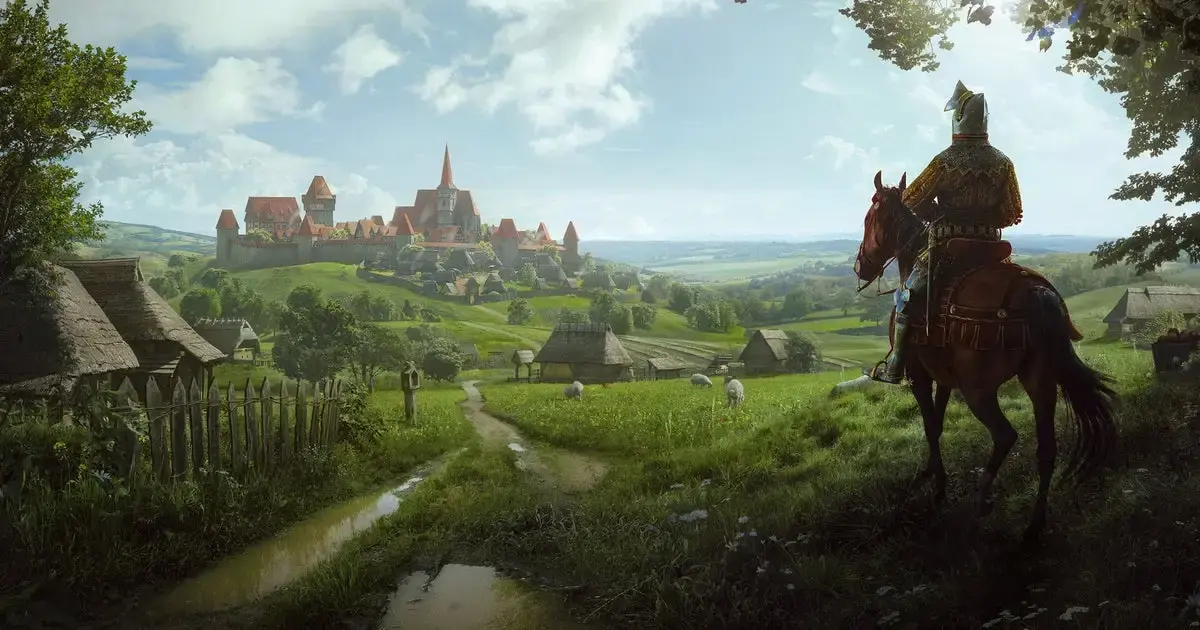Interesting thoughts about how to define success for video games in today’s market, particularly for those using early access. Lots of respect for Hooded Horse’s CEO, Tim Bender, he says all the right things and seems genuine.
He describes van Lierop’s post as “exactly the kind of distorted endless growth/burden of expectations/line must go up perspective that causes so much trouble in the games industry”. He’s also unconcerned by Manor Lords falling behind its initial vast popularity, poking fun at “the apparently dark reality that some people, after enjoying their purchase of a premium, single-player title, might decide to go on and play another game (The horror! The horror!).”
Headline is a little melodramatic though.
The Long Dark came out in 2017 and the story mode still isn’t finished yet, so I dunno if they’re the ones to be pontificating about being slow with the content lol.
I mean it’s a great game, but yeah it’s been a minute.
That was actually my first thought as well lol. Maybe story mode is secondary to some people who just like the survival grind, but it’s the only part I’m interested in, and my attention in The Long Dark has come and gone waiting for it to complete.
I bought the alpha version back in 2015. I was happy with my $15 purchase then and they have continually updated the game. Sure, it has taken a while to “complete” the game but I never really even expected a story mode.
I do kind of agree with the sentiment that games so not necessarily need to be constantly worked on. Another game I think of is No Man’s Sky. Yes, it was a shallow and incomplete game on release. But they kept working on it until it was far beyond what would be considered complete. And they are still doing pretty major updates. While I do appreciate it because they have added some great content, I also think they could call it good and possibly put their developers onto a new game. There is also the risk that a major update screws up the game that people thought they bought.
I don’t think this is a bad article - or discussion - altogether, but this excerpt really brings out the most crucial aspect, or rather how its missing:
Missing from the discussion is a sense of how much cash Slavic Magic and Hooded Horse need right now to sustain on-going Manor Lords development.
The point being, major games owned by large studios are driven by infinite growth because that’s how their business model has shifted heavily into for the past few years. For minor developers, indie, solo or otherwise, the matter is far simpler: Can they afford their livelihood plus keep working on the game with how much they’re making? If yes, good, keep at it. If not, then we have a problem.
Given how that’s not detailed at any point, its impossible to really pick a side. If Styczeń has made enough money that he can afford to work on the game slowly for several months, this discussion is a non-issue. If he is struggling to make ends meet, or if he foresees struggling soon due to revenue slowing down, it might be time to work on rebuilding that publicity.
Manor Lords was the top-seller on Steam for a couple days if not a full week, so Hooded Horse definitely has enough money for a good while.
Bender said Manor Lords sold 250,000 copies in the last month after selling over two million copies in its first three weeks MSN
2,250,000 * $30 = $67,500,000
I think they’ll be good for a while.
*70% - don’t forget Steam’s cut! There’s basically nothing left after that.
/s just in case not obvious
I believe Steam’s predatory cut is very important to the discussion and not a light matter at all, although that’s a discussion for a different thread.
Those should still a good amount of earnings, even if we aren’t aware of how much it goes to HH and how much to Styczeń, so they do have good reason to take it easy.
Not to go down a rabbit hole that’s off topic, but I’m generally not offended by Steam’s cut. The platform, advertising, centralizing, hosting, and cloud saves, etc etc, seem like a major benefit, especially for smaller developers, that would allow them to get to market faster, and with a much larger audience.
Which also drops from 30% to 25% after $10M and to 20% after $50M, giving a grand total of:
$10,000,000*0.70+ $40,000,000*0.75+ $17,500,000*0.80= $51,000,000Not including taxes and fees
I don’t understand how anyone buys Early Access games. Yes, I understand that the creators need to make a living before the game launches, but big companies should have the reserves and small companies may just take the money and run.
A couple days ago I looked at pcgamer’s summer steam deals list, and since Manor Lords topped the list I went over to Steam to check it out. Early Access. Nevermind.
I forgot about it entirely until looking at this article. Went to Steam and: Oh. Right. Early Access. Nevermind.
I do agree that it is too early to expect more updates. It only became available in April. I don’t expect it to have improvements worth integrating yet. That said, I’m not spending $30 (regular price $40) on something that may or may not end up being any good – that might always be too buggy to play, or too cringe-y to enjoy, or go so far from the initial demo that it isn’t the same game (I will never forgive you, Spore, and I will never buy you).
My attitude around early access games is to buy them only if I would be satisfied with the game in its current state, at the price offered.
If you pay full price and go into it expecting improvements that may never come, you’ll be disappointed.
If you buy an incomplete game for cheap and they later expand it and raise the price, it’s a pleasant surprise.
It can come down to the company.
Like, a big AAA dev/publisher or a relatively unknown newbie? Not gonna trust that it’s going to turn out good or get finished.
A company like Crate? Hell yeah, they make solid shit and haven’t fucked me over once on it. I watched Grim Dawn grow up from 2 acts to getting a third expansion. Farthest Frontier is also shaping up into a fun time, in my opinion.
If they have a history, it can be worth it to take the risk and take some small part in the process.
I do that to help some of the indie devs I like. I don’t play them until the final release or don’t contribute any other way. Did that for Factorio, Mashinky, Soviet Republic, Songs of Syx, Kingdoms Reborn, Farthest Frontier, etc.
I know one of the Long Dark devs – chill AF – and if they are a representation of their company culture, then I would consider this less of a snipe, and more of a business model observation one would make over beers.
But, yeah, it is yet to be seen if Manor Lords is a flash in the pan, or has a long tail (like Paradox games or No Man’s Sky or others).
Their choice to post it on pro-endless-growth LinkedIn sure makes it feel like a snipe.
Business people post on LinkedIn. I do too. Gotta know your audience.
Yes, exactly.






